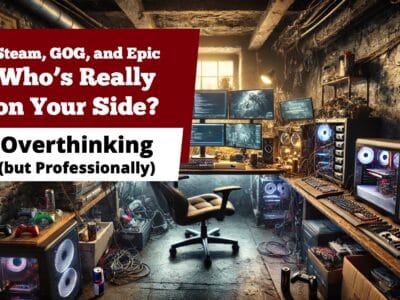
Overthinking, but Professionally: Is LitRPG Just Escapism, or Something Deeper?
Is LitRPG just a guilty pleasure, or does it actually mean something? Let’s get a little more profound on this shower thought. This is Part 3 of a 3-part series on LitRPG: its past, how to write it, and why it keeps us coming back. LitRPG isn’t just about power-ups and progress bars. It taps into something deeper. Why do these stories hit so hard? Let’s autopsy why this genre is fundamental fantasy rather than a fad. Missed the earlier parts? Introduction There are a few genres that are experiencing break-out success, and with good reason. They scratch an underserved niche and, if done well, expand that niche into a chasm of readership that becomes a defining success. Romantasy is a great example, but we’re here to talk about LitRPG. You’ll still never pry Paladin’s Grace from my hands, but I will Read More …

